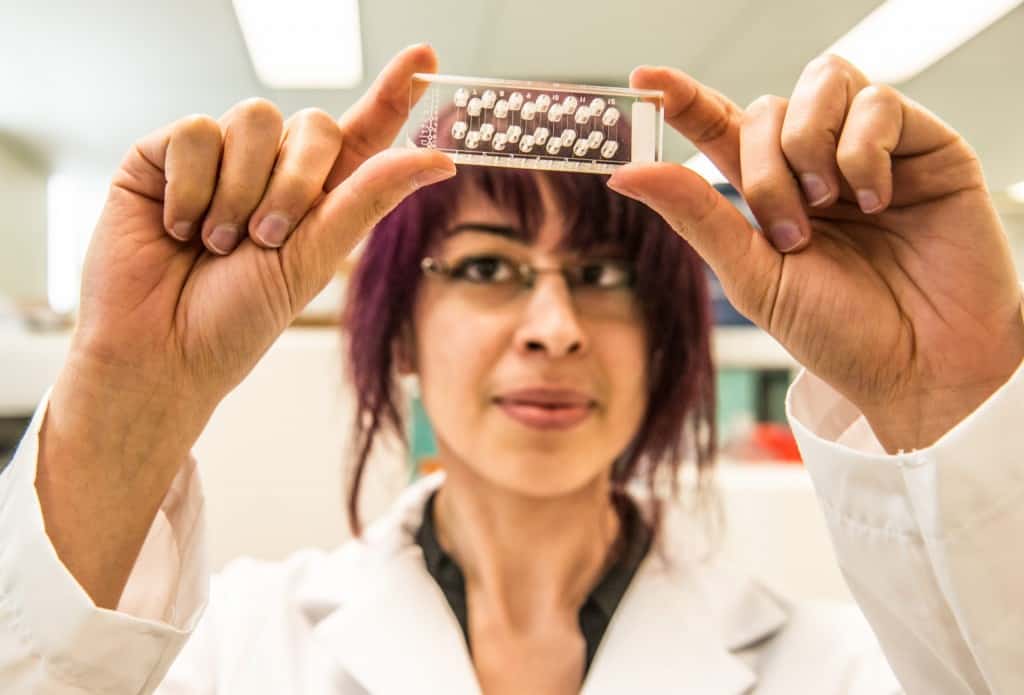She may now be spared the trauma her mother endured
Iris Iannone was a young mother and a healthy person when, out of the blue, she suffered a cardiac arrest. In addition to heart failure, she spent ten days in a coma. Then, in the wake of these traumatic, life-threatening events, Iris was told that she needed a heart transplant.
All that had befallen her was the result, she later learned, of a rare genetic mutation that she had carried her whole life, a disease that was now manifesting in ways that had nearly claimed her life.
Thanks to care she received at St. Paul’s, including a heart transplant, Iris made a full recovery. Her ordeal, however, she was soon to find out, was not over.
A blessing in disguise
As part of her heart transplant, Iris’ blood was screened and it was during this process that her genetic mutation was discovered and identified. Learning that her condition was genetic, Iris’ thoughts turned to her children, and whether any of them had inherited this potentially deadly disease.
Unfortunately, one of them did. Iris’ daughter had inherited the mutation.
This was harrowing news for Iris to receive. It would be devastating, for any parent, to know that their child may be exposed to the same life-threatening medical issues they themselves had endured.
But in working with her caregivers at St. Paul’s, Iris soon saw that her daughter’s diagnosis was a blessing in disguise and that, in this case, knowledge was power. Now, doctors would be able to monitor Iris’ daughter, which would greatly reduce the chances that the mutation would impact her as it had Iris, who had been unaware of the mutation’s presence until it struck.
That Iris’ genetic information was able to be analyzed in this manner, and that it helped to diagnosis her daughter, is why Dr. Martin Trotter, Head of Pathology and Laboratory Medicine at St. Paul’s, wants to build an online digital registry of patient biopsies, which will allow doctors from around the world to analyze the same slides and collaborate on diagnoses.
“Such a digital registry will mean dramatic improvements in identifying diseases,” says Dr. Trotter, “and in getting earlier diagnoses that will in turn enable us to provide the best care for people like Iris and her daughter.”
Dr. Trotter also says that the time is now for this major step into the digital realm, and that the days of looking at tissue samples on slides only through conventional microscopes are numbered.
“Toward building this registry, the first key piece of equipment we need is called a Whole Slide Scanner,” says Dr. Trotter. “This scanner will create a fully digital slide, much more powerful for data analysis and shared expert opinion than a conventional glass slide. This advanced imaging technology will give us more tools to recognize patterns of disease that correlate with genetic abnormalities and can help us find these genetic patterns before damage occurs.”
In addition to clinical benefits, Dr. Trotter speaks to the great opportunities the new scanner—and ultimately, the digital registry—will have for research and teaching. He envisions St. Paul’s having a “digitized pathology lab” that will help to usher in the future of medicine.
As always, friends of St. Paul’s Foundation are encouraged to support the visionary work of our clinicians and medical investigators, especially when opportunities arise to acquire key pieces of equipment and new technology.
To help Dr. Trotter and his team with their new scanner—to help them get started on building their ground-breaking digital slide registry—please make a gift to St. Paul’s Foundation today. Many more patients and families, like Iris and her daughter, will benefit from your concern and caring for years to come.
